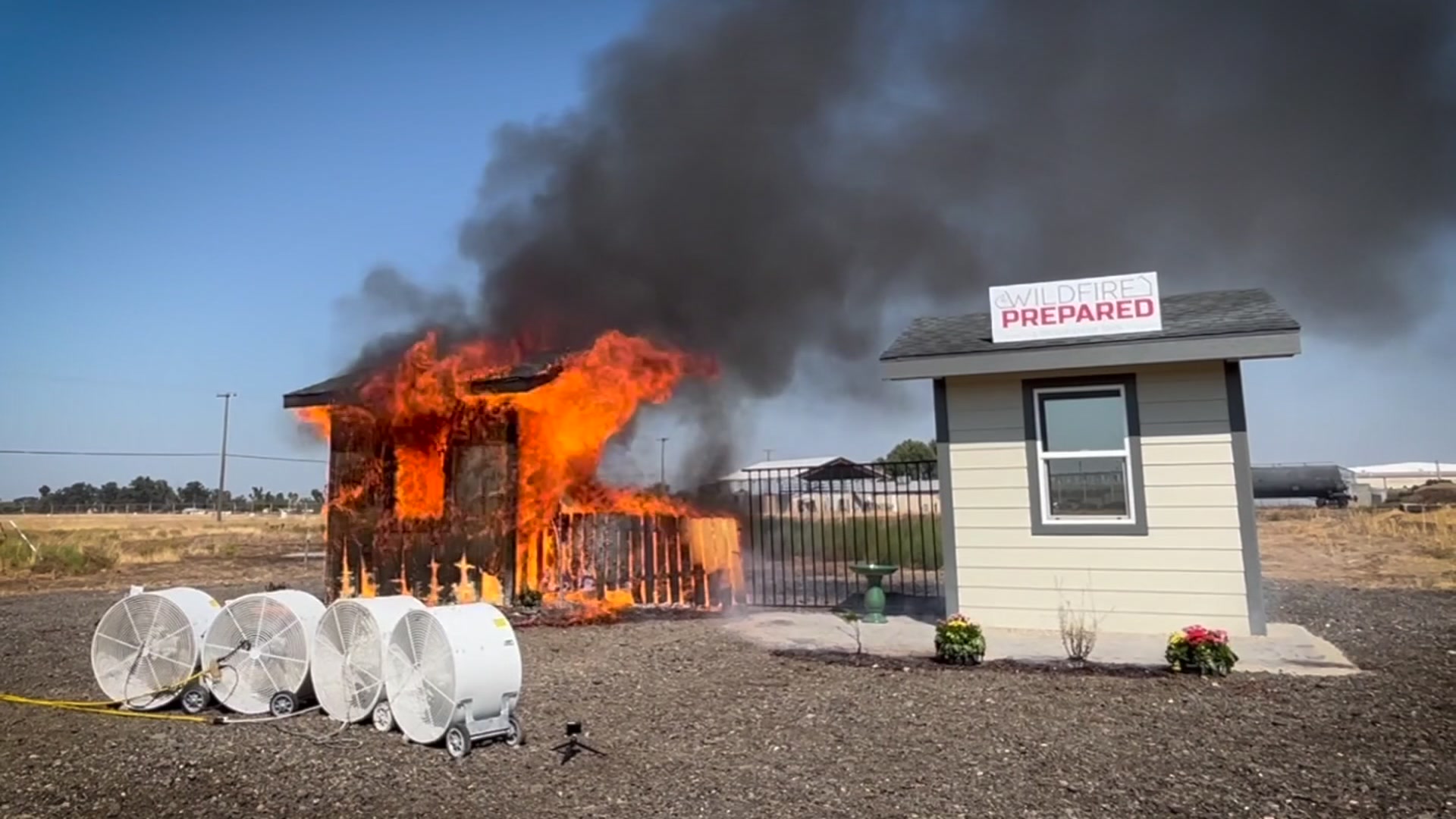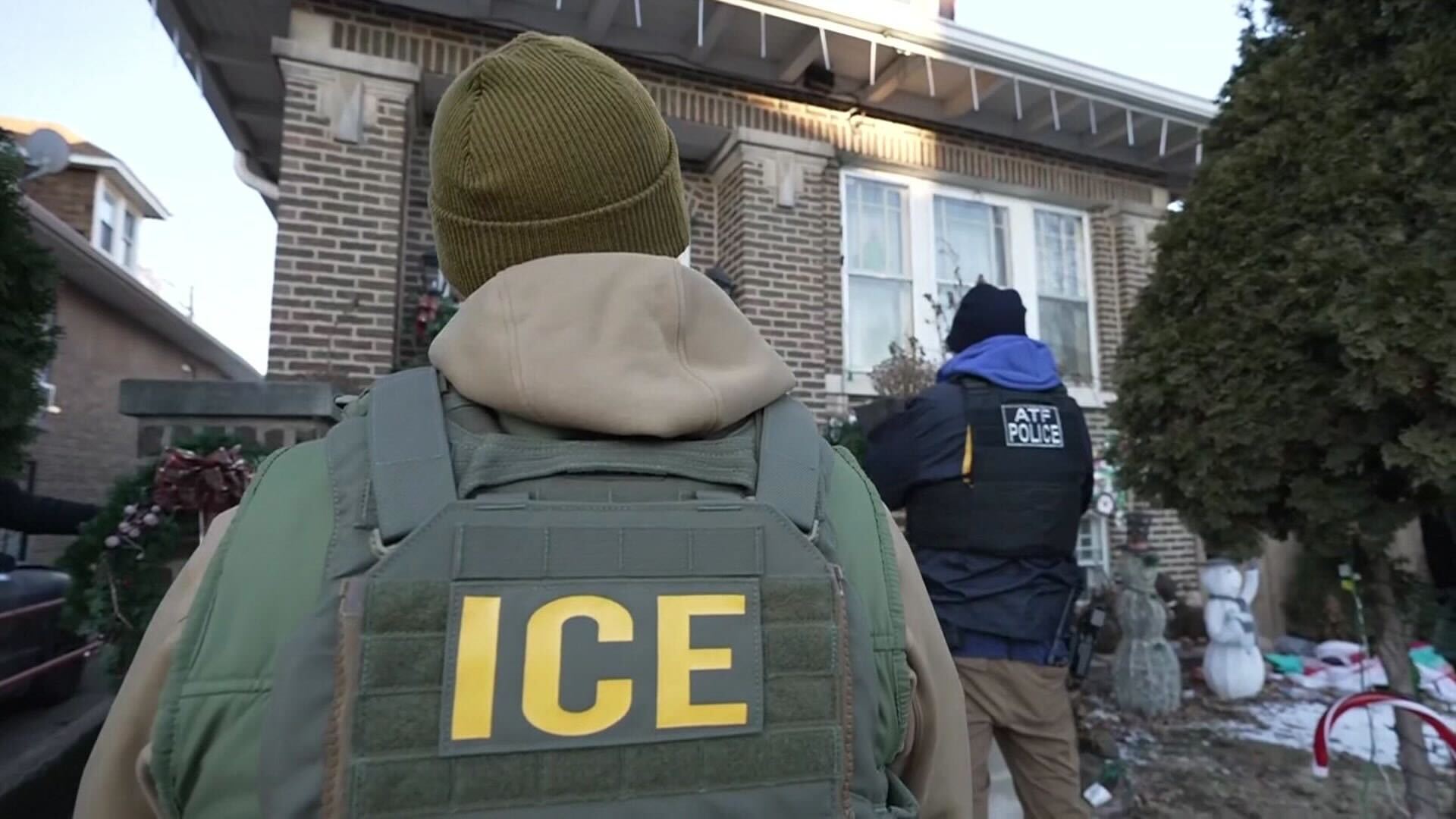A 911 call from a North Texas mom about her baby turns from panic to positive. CPR instructions given over the phone from the dispatcher saved her child’s life. Friday she was able to meet the hero on the end of the line.
Eight weeks after a North Texas mother performed CPR on her baby boy with the help of a MedStar 911 dispatcher, she met the dispatcher who she credits with saving her child’s life.
Erin Fennell is the mother of now 11-week-old Parker. The incident happened in early September inside their home. When Parker began to cry that day, Fennell said she was trying to calm him down but he soon became quiet and unresponsive.
Watch NBC 5 free wherever you are
"He did turn purple, which was really, really scary," Fennell said Friday. “They determined he had aspirated on his milk that I fed him about an hour and a half before, so after a lot of different tests…he actually can’t take anything by mouth right now.”
She immediately called 911, which is when she was connected to MedStar dispatcher Valerie Carson. Carson has been working with EMS for 40 years and has spent the past 30 years as a dispatcher. On the 911 call, Fennell’s voice is shaky but not panicked.
Get top local stories in DFW delivered to you every morning with NBC DFW's News Headlines newsletter.
She said Friday, she was surprised at how calm her demeanor was considering how scared she felt.
“It’s a feeling that I hope nobody has to feel, honestly. It’s not something anybody should ever have to do, but I’m glad there are people who are well trained to walk us through it,” she said. “I was very panicked. Your thought process is, am I going to break a rib? Am I going to hurt an essential organ? But I have to do it, otherwise, I know he’s not going to be here with us.”
The call was less than six minutes long. Carson, on the other end, was giving Fennell instructions on CPR until first responders arrived.
Local
The latest news from around North Texas.
“Pump his chest rapidly five times. At least five per second and let the chest come all the way up between pumps. Do it now and tell me when you’re done, okay?” Carson said on the call. “Ready? We’re going to go at this rate. 1, 2, 3, 4…1, 2, 3. Stop. Okay?”
Once Parker let out a cry, both Fennell and Carson said there was a sense of relief.
Parker was born with a cleft lip and palate, which Fennell said was part of what led to the incident in September. Fennell said when Parker was first born, he stayed in the NICU due to feeding and breathing issues. Before they were able to bring him home, she and her husband were required to watch a video on CPR and were given a doll to practice on. Outside of that process, Fennell said they did not have formal training.
She and Carson met in person for the first time Friday.
“I’m surprised I’m not completely breaking down in tears right now because she…I mean, I’m never going to forget her name. I’m never going to forget that phone call. She is the reason Parker is here,” she said.
Carson also commended Fennell on how calm she was during the call, which she said helped greatly in saving the baby's life.
“Pediatric and child calls are the most difficult for us because it’s a non-visual environment,” she said. “It’s very stressful, but we know that the only way we’re going to have this kind of an outcome is to have our family or caller on scene, calm them down. It gives them the best chance for survival.”
In the past year, MedStar crews responded to 2,500 cardiac arrest patients. According to the American Heart Association, bystander CPR, if performed immediately, can double, or triple the chance of survival from an out-of-hospital cardiac arrest.
About 46% of people who experience an out-of-hospital cardiac arrest get the immediate help that they need before professional help arrives, MedStar reports.



